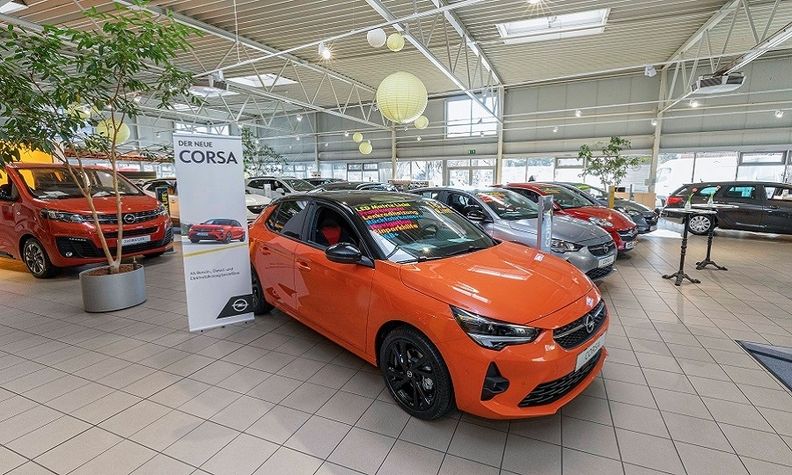FRANKFURT -- German dealers are demanding an extension of financial aid after policymakers in Berlin maintained the sales ban on passenger cars for another month.
On Wednesday, at a meeting of the federal and state governments led by Chancellor Angela Merkel, lawmakers decided to maintain the current lockdown for non-essential retail, which includes car showrooms, until March 7. The measure has been in place since mid-December.
"Incoming orders are collapsing just as dealer lots are full of vehicles purchased last year before the lockdown. These vehicles are naturally financed and for retailers that represents an enormous amount of tied-up capital," Jürgen Karpinski, president of the ZDK German dealer lobby group, said in a statement on Thursday.
"We had hoped for the prospects of a re-opening our businesses for the important spring season in view of the comparatively very low risk of infection in dealerships," Karpinski added.
Prior to meeting in Berlin, the ZDK had warned the government that its members faced bankruptcy if the they missed out on the crucial spring business.
Karpinski was supported by the auto industry, which has argued together with its dealers that showrooms do not represent a material risk of transmission of COVID-19 given much of the surface area is reserved for parked cars, automatically leading to comparatively few customers per square meter.
"A trip to the dealership is probably about as safe as a walk in the park," said Rainer Zirpel, head of the VDIK, the foreign automakers association in Germany.
With months often passing between the time a vehicle is ordered to specification by a customer and the time it is delivered, Karpinski warned today's lost business is tomorrow's lost revenue.
For that reason, the ZDK is calling on the government to extend into the second half of this year state aid for coronavirus-affected companies that is currently set to expire at the end of June.
The German government decided together with the states that non-essential businesses would remain closed to the public until a state's seven-day incidence rate fell to a level of 35 new coronavirus cases or fewer for every 100,000 inhabitants for at least three consecutive days.
Due to Germany's federal nature, Berlin cannot impose the lockdowns without support from the states, which ultimately can determine whether to reopen businesses.
The state of Thuringia allowed in its car dealerships to remain open in December while other German states adhered to the compulsory closure.
Such a move by Thuringia could create an incentive for "shopping tourism," where consumers travel to a neighboring state to make their purchases.
Karpinski opposed linking a reopening of the business to a region's incidence rate, since it could further confuse customers.
"We need clear, binding rules for the entire country," he said, "not a patchwork of individual solutions in isolation."




